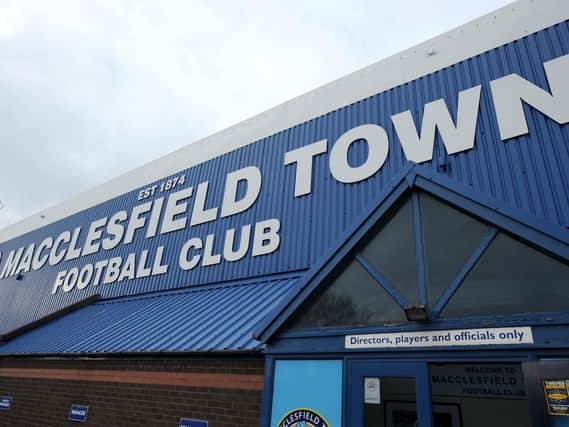The Matt Scrafton column: The future of the game is at stake


It finally appears to have dawned on those in power, whether it be the FA, the EFL or the government, that financial support is a necessity to stop a potential catastrophe.
Thankfully, National League clubs have been told they will receive an emergency grant to enable them to start the new season this weekend. It’s a start.
Advertisement
Hide AdAdvertisement
Hide AdWhat now for clubs in the EFL, who continue to be financially crippled by the ban on fans entering their grounds?
Do we honestly expect Premier League clubs to poke their self-serving heads from out of their own bubble to provide any assistance? Perhaps I’m just a cynic, but I can’t see it.
All we’ve heard in recent days is the nonsensical gibberish about how the government wouldn’t expect Asda, Tesco and Waitrose to bail out corner shops were they to suffer financial hardship, so why should elite football clubs do the same for smaller ones lower down the pyramid.
This patronising garbage misses the point spectacularly.
It also assumes that football clubs, many of them stepped in more than 100 years of history and tradition, should be treated as just another ‘business’ with customers.
Advertisement
Hide AdAdvertisement
Hide AdA number of onlookers have leapt to the defence of the lower leagues, citing the need to protect jobs of those working for the clubs involved.
Those involved in the Premier League, meanwhile, believe they need a strong league pyramid as a breeding ground for up-and-coming talent.
The Football League system doesn’t exist to solely serve the Premier League and nor should it.
As the deepest footballing pyramid in the world, it needs to be protected at all costs.
Advertisement
Hide AdAdvertisement
Hide AdFootball clubs in the lower leagues provide joy, sorrow and escapism for supporters in equal measure.
Is that not enough on its own to justify why we probably ought to keep it around rather than judging everything on economical terms?
While the Premier League provides the razzle and dazzle that is beamed into millions of homes around the world, it is the lower leagues that are the lifeblood and true soul of the game.
In what other sector would you see people – let’s take fans of Carlisle United as an example – set off at 5am on a Saturday to make an 800-mile round-trip to see their side lose 4-0 against Plymouth Argyle in a run-of-the-mill fourth tier encounter? And guess what, they don’t regret it and would do it all over again.
Advertisement
Hide AdAdvertisement
Hide AdUnfortunately, the gap between the lower leagues and the top division and the haves and have-nots has never been as wide as it is now.
Just this week various media outlets reported the £20m ‘super-agent’ Jorge Mendes has made this summer in commission – £4.4m of that coming from Diogo Jota’s move from Wolves to Liverpool alone.
Meanwhile Macclesfield Town have gone to the wall for the measly sum of £500,000 with their Moss Rose ground and the surrounding land being advertised just hours after their expulsion from the National League was confirmed.
Football can be a gruesome game sometimes, but we keep coming back for more.
Advertisement
Hide AdAdvertisement
Hide AdThat’s despite the likes of Arsenal making 55 staff redundant before going on to splash millions of pounds on transfers.
Willian, a free transfer, now earns £220,000 a week. When the signing-on fee is taken into account, he could earn as much as £35m.
Meanwhile, the cash saved by making the 55 members of staff redundant will amount to around £2m.
A number of other sides in the Premier Division, a list which originally included champions Liverpool before they were forced into an embarrassing backtrack, have also taken advantage of the government’s furlough scheme, despite raking in hundreds of millions from TV deals.
Advertisement
Hide AdAdvertisement
Hide AdThe disparity between the clubs at the lower end, those who provide a vital link to the communities they serve, and the giants at the top that appear so detached from reality has never been more stark.
Blackpool are in a fortunate position where they’re able to rely on the generous financial backing of owner Simon Sadler.
Nevertheless, the Seasiders still find themselves in a perilous financial position without much-needed matchday revenue.
Just because Blackpool are likely to be lucky enough to survive this crisis, that doesn’t mean we should avert our eyes and ignore those who might not be in the same boat.
Advertisement
Hide AdAdvertisement
Hide AdMaking bold and brash predictions about the incoming downfall of the footballing pyramid sounds dramatic and unlikely when you put it in such vivid terms.
That is the worrying situation we now find ourselves in.
Any attempts to downplay or disregard the current state of affairs ought to be ignored. The future of our very sport, after all, is at stake.